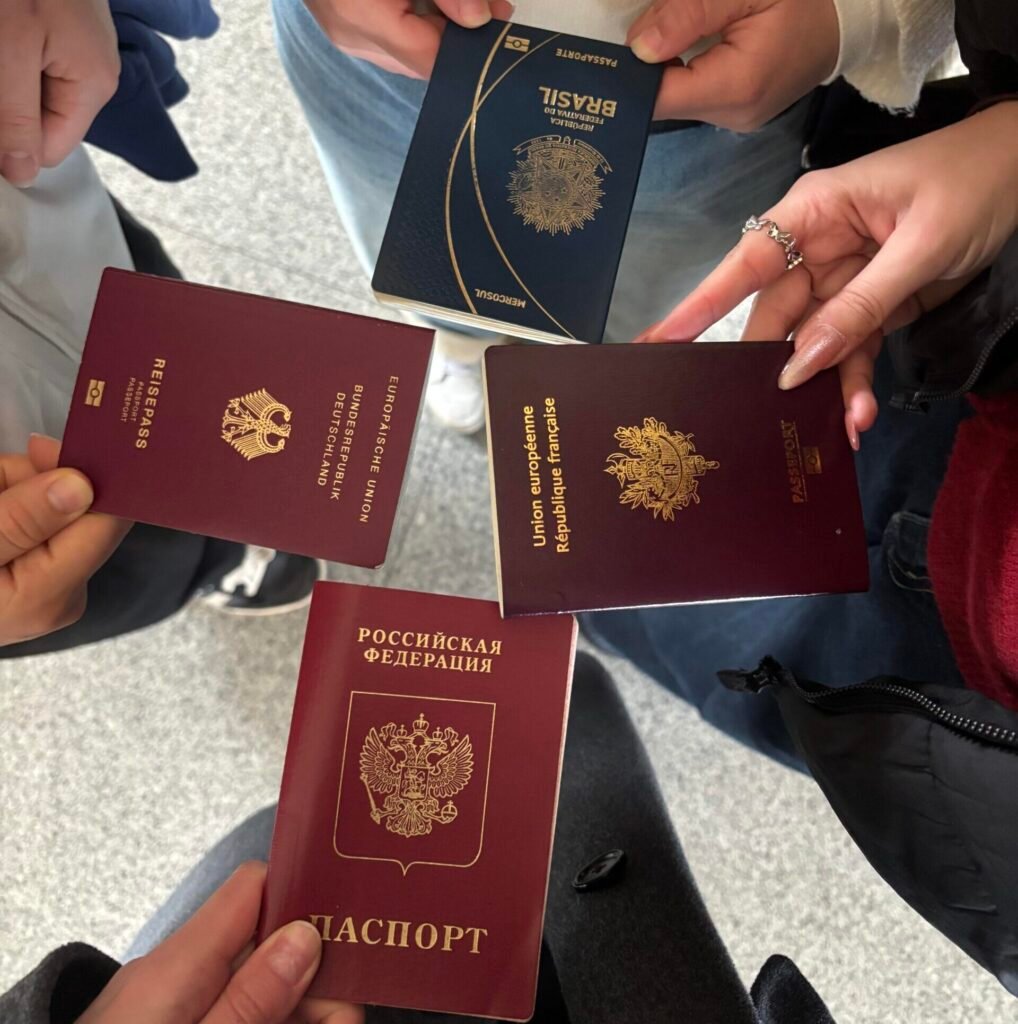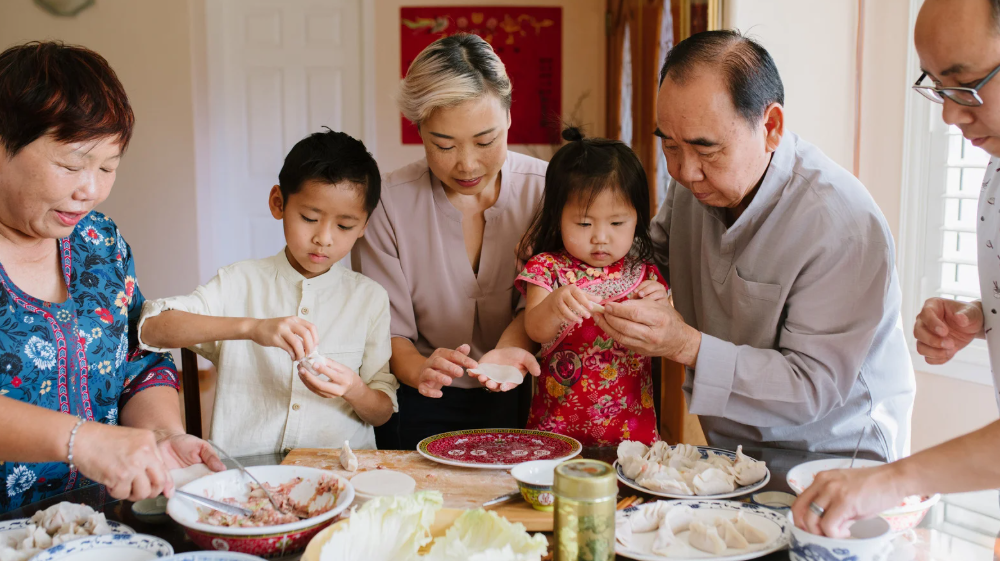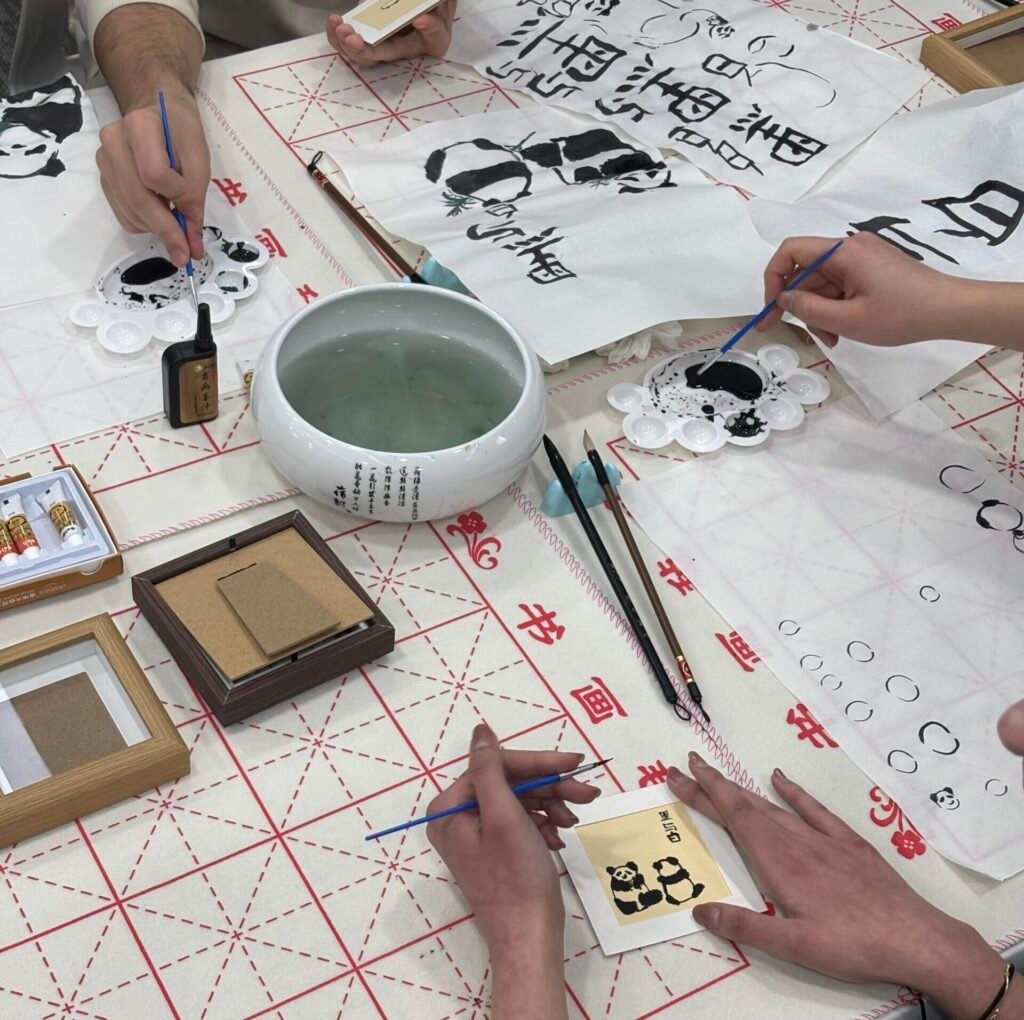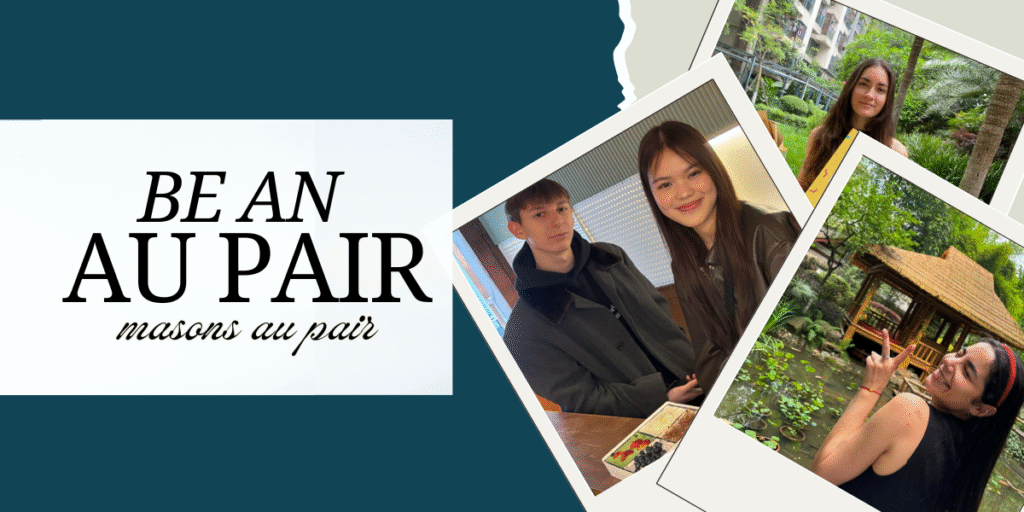If you’re planning to study abroad, take a gap year, or explore international education opportunities, you’ve probably heard of two enriching paths: becoming an au pair or joining a student exchange program.
Both are life-changing ways to experience a foreign country, improve your language proficiency, and live with a host family. However, while they both fall under the broader umbrella of intercultural exchange and international student mobility, they serve different purposes and come with unique responsibilities, application processes, and legal statuses.
In this article, we’ll explore the key differences between au pair placements and international student exchange programs. Whether you’re aiming to improve your English skills, immerse yourself in another culture, or find the most rewarding way to live abroad with a host family, this guide will help you choose the best fit for your personal goals and academic year abroad.

1. Purpose and program goals
A student exchange program is primarily focused on academic development and gaining international exposure through formal education. As a foreign exchange student, you typically enroll in a high school exchange, university exchange, or department-approved education abroad program.
These programs are often arranged through your school exchange office, international office, or study abroad coordinator, and are supported by institutions like the Department of State or Rotary Youth Exchange. During the academic year or semester abroad, students attend classes to earn academic credit while immersing themselves in the education system of a foreign country. Depending on the structure, you may live with a host family, in campus dormitories, or in organized homestay programs, offering a unique way to experience daily life in another culture.
On the other hand, becoming an au pair is a more hands-on, cultural exchange program centered around childcare, language exchange, and daily household integration. As an au pair, you live with a screened host family in a private room, share meals a day, and become a true member of the family. Your role includes helping with light child care services, such as babysitting, teaching English, assisting with homework, and participating in after–school routines. Au pairs are not nannies or domestic workers—they are young people, often aged 18 to 30, who travel abroad as part of an intercultural exchange. In exchange for their help, host parents provide room and board, pocket money (a monthly stipend), and access to language courses or cultural activities.
While student exchange programs emphasize school-based learning, au pair placements emphasize cross-cultural learning, personal growth, and real-life immersion. Both are rewarding, but the right fit depends on whether you’re looking to pursue coursework and gain academic experience, or to live with a family and experience daily life from inside a local home through a caregiving role.

2. Legal status and visa requirements
When joining a student exchange program, participants are typically required to obtain a student visa that is tied to their academic enrollment. For example, international students who want to study abroad in China often apply for the X2 visa, while those participating in a foreign exchange or education abroad program in the United States usually need an F-1 visa. These visas are issued specifically for students pursuing formal education and generally require official transcripts, proof of language proficiency, acceptance letters from a host university, and financial documentation to demonstrate the ability to pay for tuition and living costs. Additional paperwork such as a residence permit or proof of vaccinations may also be needed depending on the country’s student exchange requirements.
By contrast, individuals participating in au pair programs typically enter their host country under a cultural exchange visa or a designated au pair visa category, depending on the national legal framework. These programs are not considered formal academic enrollment but rather youth exchange or cultural immersion experiences supported by nanny agencies, international organizations, or government-sponsored exchange programs. For instance, in China, au pairs working with Masons Au Pair are enrolled in an intercultural exchange program that includes orientation, background checks, and a legal screening process before departure. Once approved, au pairs are matched with host families, who are thoroughly vetted to ensure safety and cultural alignment.
Unlike student visas, au pair visas often include benefits such as private housing, pocket money (stipend), and meals, and may allow more flexibility in terms of daily responsibilities and free time. However, au pairs are expected to comply with national regulations regarding childcare hours per week, household duties, and language learning components (e.g., taking part in language courses or Mandarin classes in China. At Masons Au Pair, our team ensures that every applicant is interviewed, screened, and guided through the application process to meet both legal requirements and host family expectations.
This legal distinction is crucial when deciding between an academic-focused exchange and a cultural care placement. Both offer enriching ways to go abroad, but they follow different rules, offer different privileges, and come with different expectations regarding work, education, and daily life in a foreign country.

3. Age range and duration
Student exchange programs are primarily designed for high school students, post-secondary students, or undergraduates seeking to enhance their academic path through an international experience. These programs are coordinated through study abroad offices, international schools, or global education consortia such as the Rotary Youth Exchange or Erasmus Program. The duration typically ranges from one semester (e.g., spring or fall semester) to a full academic year, during which students follow a structured schedule, attend classes at a host university or high school, and earn academic credit that transfers to their home country. Participants usually live in a homestay program or campus dorm, and are expected to follow house rules, complete coursework, and attend regular exams.
By contrast, au pair programs are geared toward young adults aged 18 to 30, making them an ideal option for those considering a gap year, taking a break from studies, or seeking work and travel experiences in a foreign country. These intercultural exchange opportunities offer more flexible timelines, with placements generally lasting from 3 to 12 months, depending on visa conditions and host family needs. At Masons Au Pair, most of our au pair placements are between 6 and 12 months, aligning with visa requirements and allowing enough time for meaningful language immersion, cultural exchange, and childcare experience.
Unlike the strict academic structure of a student exchange, au pair participants are not bound to a school calendar. Instead, their daily routine revolves around child care services, such as babysitting, helping with homework, and supporting the child’s language and cultural development. They also benefit from language courses (e.g., Mandarin lessons) and organized cultural activities. In return for their support, they receive room and board, pocket money, and the chance to live as part of the family with their host parents.
Whether you’re looking for academic advancement or personal enrichment, understanding these structural differences will help you choose the path that best aligns with your international education goals.

4. Daily life and responsibilities
In an exchange program, your primary responsibilities are tied to school attendance, completing coursework, and participating in extracurricular activities at your host university, international school, or local high school. Exchange students typically follow a structured academic schedule, attend daily classes, submit assignments, and sometimes participate in school-organized clubs, sports, or cultural activities. While you may have more independence, the cultural immersion with the host family is often more limited, especially if you live on campus or in a dormitory setting rather than in a homestay program. Although you’ll experience life in a foreign country, daily life with a local family may not be as deeply integrated.
On the other hand, the au pair experience is built entirely around living with a host family and becoming a true family member during your international placement. As an au pair, your daily routine revolves around light childcare duties, such as babysitting, helping children with homework, speaking with them in English, and supporting their language development. You may also assist with simple household chores, participate in family outings, and share meals a day with the family. This structure fosters a strong intercultural exchange and allows you to immerse yourself in the family’s traditions, daily habits, and parenting culture.
Unlike students who attend class off campus and return to their own accommodation, au pairs enjoy a “home away from home” experience. You’ll live in a private room, receive room and board, and become a member of the family, participating in daily life, cultural activities, and local traditions. This deeper involvement often leads to more profound connections, better language proficiency, and a highly rewarding form of international education.
Whether you prefer the academic structure of a student exchange or the family-oriented lifestyle of an au pair program, both offer rich opportunities to grow, make new friends, and develop as a young person abroad.
5. Language and culture learning
Both student exchange programs and au pair placements promote language learning and cross-cultural understanding, but they do so through different formats and levels of immersion. In a traditional student exchange, participants typically receive formal education in a language school, international school, or host university. They attend scheduled language courses, complete graded coursework, and follow a curriculum that introduces them to both grammar and cultural topics in a classroom setting. These programs are often coordinated through study abroad offices, high schools, or post-secondary institutions, making them an excellent option for students looking to earn academic credit while improving their language proficiency.
By contrast, au pair programs blend language acquisition with daily life experiences in a homestay environment. While many au pairs attend weekly Mandarin classes or other language courses arranged by the agency or a local language school, the most impactful learning happens at home — through natural conversation, childcare tasks, and constant exposure to the host family’s culture and routine. Whether you’re helping children with homework, joining in on meals a day, or participating in family outings, every moment becomes an opportunity to practice, listen, and adapt.
This immersive approach accelerates conversational fluency, enhances cultural sensitivity, and helps au pairs develop the soft skills needed to thrive in an intercultural setting. It’s an especially rewarding experience for those who want to go beyond academic language learning and gain real-world skills in communication, adaptability, and emotional intelligence. In many ways, living with a host family turns the entire experience into a full-time language exchange, one that prepares you not just to study abroad, but to live, work, and connect across cultures long into the future.

6. Financial aspects
The financial structure of each program differs significantly. In most student exchange programs, participants are required to pay for tuition, housing, application fees, travel costs, and often additional administrative charges. These programs are typically coordinated through a study abroad office, high school exchange program, or university consortium, and may involve living in campus dorms, host university accommodations, or a homestay program. While some scholarships and grants are available, the total cost of studying abroad—especially in Western countries—can still be substantial, making this a major factor for international students evaluating their options.
In contrast, joining an au pair placement through a cultural exchange program like Masons Au Pair offers a much more cost-effective alternative to education abroad. As an au pair, you receive free room and board, three meals a day, and a private bedroom in your host family’s home. You’re also granted a monthly stipend—often between 1,500 to 2,000 RMB in China—as pocket money to cover personal expenses, transportation, or cultural outings. Additionally, many au pair programs, including ours, include weekly language courses, visa support, 24/7 local coordinator assistance, and even cultural activities at no extra cost.
Because most program fees are covered by the host parents, the au pair route allows young people to live in a foreign country, gain valuable childcare experience, and learn a new language—all while keeping expenses low. For those seeking to go abroad without incurring high costs, working abroad as an au pair is not only a rewarding and enriching experience, but also a financially sustainable way to build intercultural skills, earn international qualifications, and explore a new culture with minimal upfront investment.

Conclusion
Whether you choose to become an au pair or join a student exchange program ultimately depends on your personal goals, age range, and expectations for your international experience. If your priority is to earn academic credit, attend a foreign university or high school, and deepen your education abroad, then a traditional exchange program—often supported by a study abroad office, rotary youth exchange, or international school—may be the best fit. These programs typically cater to high school exchange students or post-secondary participants, with a focus on coursework, official transcripts, and integration into a structured education system.
However, if you’re a young adult between 18 and 30, eager to immerse yourself in a foreign culture, improve your language proficiency, and form lifelong bonds within a host family, then an au pair program may be the ideal alternative. As an au pair, you’ll not only provide childcare services such as homework help, language tutoring, and light household chores, but also enjoy free room and board, a monthly stipend, and access to language courses and cultural activities. It’s a unique path for gap year travelers, international students, or anyone looking to travel abroad, gain intercultural experience, and live like a family member in a new country.
At Masons Au Pair, we specialize in connecting vetted au pairs with safe and welcoming host families in Chengdu, China. Our comprehensive placement process includes criminal background checks, orientation, visa assistance, and continuous support from local coordinators. Participants receive a private room, three meals a day, and enjoy a vibrant cultural exchange program that combines language school learning with real-life immersion.
Interested in joining a rewarding international exchange program that goes beyond the classroom?
👉 Apply now to become an au pair in China and start your life-changing journey with Masons Au Pair today. Your home away from home awaits!
FAQ
What is an au pair?
A typical au pair is a young adult, usually between 18 and 30 years old, who chooses to travel abroad and live with a host family in a foreign country as part of a cultural exchange program. In return for room and board, a private bedroom, and a modest stipend, the au pair contributes by assisting with light childcare tasks, such as helping with English communication, homework, or supervised playtime, and sometimes minor household chores related to the child.
Unlike traditional nannies or domestic workers, au pairs are not full-time employees—they are participants in a cross-cultural student exchange. The goal is mutual enrichment: while the host family benefits from language and culture exchange, the au pair gains international experience, language skills, and a firsthand understanding of the education system, daily life, and values of their host country.
At Masons Au Pair, we specialize in placing vetted international au pairs into welcoming Chinese host families, primarily in Chengdu. Our program is designed to foster deep intercultural immersion, offering Mandarin language courses through our exclusive partnership with XMandarin School, support throughout the application process, and 24/7 local assistance. Whether you’re a gap year traveler, a recent graduate, or an international student exploring global education opportunities, becoming an au pair in China is a rewarding and life-changing path.
You’ll live with a family, become part of the household, and contribute meaningfully to their child’s growth — all while practicing Mandarin, making new friends, and experiencing the local culture from the inside out. Few student exchange programs offer such a unique blend of travel, language learning, and personal development.
What is the difference between an au pair and a nanny?
The main difference between an au pair and a nanny lies in their purpose, legal status, and the cultural exchange experience they provide. A nanny is a professional childcare worker, often local to the family’s home country, who is employed on a contractual basis to provide full-time child care services in exchange for a fixed salary. Nannies usually have specific childcare qualifications or degrees in early childhood education, and their relationship with the family is professional and transactional.
On the other hand, an au pair is typically an international student, recent graduate, or young person aged 18–30 who travels abroad to live with a host family in a foreign country. They participate in a cultural exchange program, providing light childcare and assistance with household chores in exchange for room and board, a private bedroom, meals a day, and weekly pocket money or a stipend. The goal of an au pair placement is not just childcare—it’s a mutual exchange of language, culture, and daily life experiences.
At Masons Au Pair, we make it clear: au pairs are not nannies. Our participants join a homestay program that prioritizes language learning, cultural immersion, and international education. You’ll attend Mandarin classes at our partner language school, XMandarin, and become a true member of the family—not an employee. While nannies are hired for their professional skills, au pairs are welcomed for who they are, offering families an authentic connection to another culture and language.
Additionally, visa requirements differ significantly. Nannies work under employment contracts, whereas au pairs typically enter a country on a student visa, residence permit, or a specific au pair visa, depending on the country’s policies. In China, our program ensures full support with visa guidance, orientation, and 24/7 local coordinator assistance throughout the entire application process.
In short, being an au pair is about more than working with children—it’s about living with a family, experiencing another culture, and growing personally and globally in a safe and supportive environment.
How much does an au pair get paid?
Although au pairs do not get a salary in the form of a conventional employee’s pay, they do get a complete room and board, meals, and a stipend or a monthly allowance known as “pocket money”—typically between 1,500 to 2,000 RMB a month in China. At Masons Au Pair, we guarantee your hosting family satisfies all the program standards for providing a private room, three meals a day, and frequent cultural activities. Apart from that, we also provide Mandarin classes, visa assistance, and 24/7 support. Although the comprehensive cultural exposure, language pick-up, and self-improvement scope are the real values.
Is living with a host family awkward?
It’s completely normal to wonder if living with a host family will feel awkward — especially when you’re stepping into a new country, culture, and home. But while the first few days may feel unfamiliar, most international students, au pairs, or participants in an exchange program quickly realize that this temporary discomfort is just part of the cultural adaptation process.
At Masons Au Pair, we carefully match each participant with vetted host families who are warm, experienced, and genuinely excited to welcome a foreign exchange student into their lives. These families go through a complete background check, orientation, and interviews to ensure a safe and welcoming experience. From day one, you’re treated like a family member, not just a guest. You’ll share meals per day, have your own private bedroom, and participate in everyday routines — which quickly helps break the ice.
Yes, there may be cultural differences — from meal times and house rules to parenting styles and communication. But this is exactly what makes the homestay program such a powerful intercultural exchange. You’ll learn to adapt, communicate respectfully, and develop a deeper understanding of life in a foreign country. In return, your host parents and host siblings will also get to know your culture, language, and traditions. It’s a reciprocal experience that fosters real connection, empathy, and global awareness.
Most exchange students report that the initial awkwardness fades within the first week. Daily conversations, language learning, shared chores, and laughter over meals help turn your placement into a home away from home. Many au pairs even stay in touch with their host families long after their academic year, gap year, or youth exchange ends — some even visit again in the future!
So yes — living with a host family might feel awkward for the first few days. But give it time, and you’ll likely find it becomes one of the most rewarding, enriching, and life-changing aspects of your entire international exchange program.
Why do people stay with host families?
Staying with a host family is one of the most enriching aspects of any cultural exchange program, especially for international students, au pairs, or participants in a study abroad or student exchange program. It offers a unique opportunity to immerse yourself in daily life, language, and local customs, while receiving room and board, emotional support, and a true sense of belonging in your host country.
Many foreign exchange students and international au pairs choose homestays because they want more than just accommodation — they want to become part of a family abroad. This experience creates deep cross-cultural connections, improves language proficiency, and provides a strong support system. Living with a screened and vetted host family means you’re not just a visitor; you’re treated like a member of the family, sharing meals, traditions, and everyday life.
In programs like Masons Au Pair, participants are matched with host parents who are carefully selected through a thorough application process, including criminal background checks and interviews. These families provide a private bedroom, meals per day, and participate in intercultural activities. It’s not uncommon for au pairs and exchange students to form lifelong friendships with their host families, even returning for future visits or maintaining long-distance relationships years after their academic year or gap year abroad.
Living in a homestay also enhances your language learning experience. You’ll practice your English or Mandarin skills daily, gain insight into local parenting styles, help with childcare or household chores, and be exposed to cultural differences in a safe, welcoming environment. Whether you’re studying abroad, working as a caregiver, or joining a student exchange, the homestay program fosters real-life learning that simply can’t be taught in a classroom.
In short, people stay with host families because it transforms their time abroad from a trip into a life-changing experience. It’s the heart of what makes international exchange programs truly meaningful — connection, cultural understanding, and becoming part of something bigger than yourself.
What are au pairs not allowed to do?
Au pairs are not domestic workers, full-time nannies, or household staff. Instead, they are young individuals participating in a structured cultural exchange program, such as Masons Au Pair, designed to provide international experience, language immersion, and cross-cultural learning through homestay placements with a host family in a foreign country.
In China, au pairs live with carefully selected host parents and act more like an extended family member than an employee. Their role is centered around light childcare and language exchange, not housekeeping or full-time work. Tasks typically include:
Practicing English speaking with the host child
Assisting with homework and language learning
Playing educational games and organizing after-school activities
Helping during bedtime routines or meal preparation for the child only
However, an au pair is not allowed to:
Perform heavy household chores like deep cleaning, laundry for the entire family, or yard work
Cook full meals for the entire family on a daily basis
Take on a full-time babysitting job or any paid work outside the host family
Start their own business or accept other forms of employment (as per visa and residence permit laws in China)
This distinction is crucial for families and international students joining the student exchange program. The goal of being an au pair is intercultural exchange, not employment. Au pairs receive room and board, a private bedroom, pocket money, and access to language courses or Mandarin classes through our partner language school, but they are not hired as professional nannies or domestic staff.
By maintaining this balance, the au pair experience remains a mutual exchange that enriches both the host family and the student — offering a rewarding, life-changing opportunity to live abroad, gain cultural fluency, and build lifelong friendships through a carefully managed international student exchange.
What visa do I need to be an au pair in China?
To become an au pair in China, you typically need an X2 student visa, which is issued for short-term language study. Masons Au Pair partners with accredited Mandarin schools, ensuring you receive an official invitation letter necessary for your visa application. We handle all visa guidance, and once you arrive in China, we even reimburse your visa fees—another benefit of our program. The X2 visa allows you to legally stay in China for the duration of your program, combining language study with cultural exchange in a fully supported environment.
For more information check our page : Get Your Chinese Visa
What is the difference between a host family and a homestay?
While the terms host family and homestay are often used interchangeably in the context of student exchange programs or au pair placements, they actually refer to two slightly different aspects of the international student experience.
A host family refers specifically to the people who welcome you into their private home — usually host parents (and sometimes siblings) who open their doors to foreign exchange students, au pairs, or international interns. These families provide more than just room and board — they offer a supportive, family-style environment where you can immerse yourself in a new culture, practice the local language, and feel like a true member of the family. At Masons Au Pair, all our host families are carefully screened, interviewed, and trained to ensure a safe, enriching, and authentic cultural exchange experience.
A homestay, on the other hand, refers to the program structure or living arrangement itself. It’s part of a larger cultural exchange program, youth exchange, or international education initiative where the student or au pair lives in a private household rather than in a school dormitory or apartment. A homestay includes everything from meals per day, a private bedroom, and participation in daily family routines — all of which support full intercultural immersion.
In short:
The host family = the people.
The homestay = the program or setup.
Living with a host family through a homestay program offers a unique, life-changing experience for international students, allowing them to study abroad, build language proficiency, and gain cross-cultural understanding in a truly personal and enriching way.
What is an international experience?
An international experience refers to any opportunity where individuals — especially students, au pairs, or interns — live, study, or work in a foreign country as part of a structured exchange program, study abroad program, or cultural immersion initiative. It involves stepping outside your home country and adapting to a new culture, language, and way of life, whether through an academic semester, a gap year, or a homestay program.
In a typical international student exchange, participants live with a host family, attend language school, take part in cultural activities, and often provide childcare or English tutoring in return for room and board, pocket money, and a private bedroom. This setup — common in au pair programs like those offered by Masons Au Pair — allows for a truly immersive cultural experience. You don’t just visit a new country — you become part of it.
An international experience:
Helps develop language proficiency (through Mandarin, ESL, or TEFL courses)
Enhances global awareness and cross-cultural communication skills
Builds independence, adaptability, and confidence
Offers a rewarding journey of personal and professional growth
Often includes volunteering, work and travel, or childcare responsibilities
For many young people, an international experience is life-changing. It opens doors to international education, career opportunities abroad, and lifelong friendships with people from different countries. Whether you’re helping with after-school homework, practicing language and culture in a homestay, or navigating local transportation systems, every moment abroad becomes part of your story.
If you’re considering becoming an au pair in China or joining a student exchange program, your international experience starts here — with support, structure, and a community that helps you thrive abroad.
What are the different types of international experience?
An international experience refers to any opportunity where individuals — especially students, au pairs, or interns — live, study, or work in a foreign country as part of a structured exchange program, study abroad program, or cultural immersion initiative. It involves stepping outside your home country and adapting to a new culture, language, and way of life, whether through an academic semester, a gap year, or a homestay program.
In a typical international student exchange, participants live with a host family, attend language school, take part in cultural activities, and often provide childcare or English tutoring in return for room and board, pocket money, and a private bedroom. This setup — common in au pair programs like those offered by Masons Au Pair — allows for a truly immersive cultural experience. You don’t just visit a new country — you become part of it.
An international experience:
Helps develop language proficiency (through Mandarin, ESL, or TEFL courses)
Enhances global awareness and cross-cultural communication skills
Builds independence, adaptability, and confidence
Offers a rewarding journey of personal and professional growth
Often includes volunteering, work and travel, or childcare responsibilities
For many young people, an international experience is life-changing. It opens doors to international education, career opportunities abroad, and lifelong friendships with people from different countries. Whether you’re helping with after-school homework, practicing language and culture in a homestay, or navigating local transportation systems, every moment abroad becomes part of your story.
If you’re considering becoming an au pair in China or joining a student exchange program, your international experience starts here — with support, structure, and a community that helps you thrive abroad.
Is being an au pair in China legal?
Yes — becoming an au pair in China is legal when done through an official cultural exchange program that includes a language-learning component and is supported by a valid X2 visa.
At Masons Au Pair, all participants are enrolled in Mandarin language courses with our certified partner school, XMandarin, located in downtown Chengdu. This allows au pairs to legally reside in China under the X2 student visa, which is specifically designed for short-term education abroad programs such as language courses, exchange programs, and intercultural learning experiences.
The X2 visa is perfect for international students, foreign exchange participants, and youth exchange travelers who plan to stay in China for less than 180 days. It enables au pairs to take part in a homestay program while receiving formal instruction at a language school, complying with Chinese immigration laws.
Unlike tourist visas or unauthorized stays, the X2 visa provides legal status and allows you to:
Participate in a student exchange program
Attend weekly Mandarin classes at XMandarin (required for the visa)
Live with a screened host family as part of a cultural exchange placement
Receive room and board, a monthly stipend, and full program support
Enjoy legal residence, language immersion, and childcare experience in a foreign country
Our application process includes assistance with visa paperwork, transcripts, school enrollment, and orientation, so you’re fully prepared for a life-changing experience abroad. Every au pair placement meets our strict standards and follows Department of State-style cultural care guidelines to ensure a safe, enriching, and legally compliant exchange opportunity.

